
 Flash News
Flash News
Video/ Revolt in Corfu prison, Albanians and Georgians set fire to cells
Accident at "Shkalla e Tujanit" in Tirana, a car overturns after the collision
KPA dismisses Tirana judge Ardiana Bera from office
Don't lose face/ After Rama's 'threat', SP candidates withdraw request from CEC
VIDEO/ The assassination in Durrës, the moment of the murder of 29-year-old Ermir Dedja
Analysis: Possible US tariffs on EU goods could affect Kosovo's exports

Kosovo's exports to the United States have been largely stable, but President Donald Trump's announced tariffs on EU goods could also increase production costs for Kosovo companies. Frutex, a Kosovo-based company that produces soft drinks and energy drinks, began exporting to the United States in 2019. At the time, the value of its exports exceeded $40,000 and last year reached over $100,000.
"The value, again, is not that great, since it is not easy to penetrate a market where competition is strong. However, we are also satisfied with this, which comes thanks to the large Albanian community in the US ," the company's owner, Shaqir Palushi, tells Radio Free Europe.
Economic organizations say that since 2019, Kosovo's overall exports to the US have actually begun to increase, due to the increase in product quality.
This is also shown by Kosovo Customs data, according to which their value in 2019 was three million euros, while three years later it reached over 131 million. Before that time, however, it was significantly below three million.
Radio Free Europe asked the Ministry of Industry, Entrepreneurship and Trade why there was a significant decline in exports to the US last year, but as of the middle of last week it had not received a response.
Products that Kosovo exports to the US include: food, beverages, textiles, mattresses, but also wood and plastic products. American goods in the Kosovo market are mainly products of animal origin, textiles, fuels, means of transportation and others.
Kosovo has a small manufacturing industry, but some local companies have managed to export quality products to international markets, says the president of the Kosovo Chamber of Commerce, Lulzim Rafuna.
According to him, the factor that has influenced the increased presence of Kosovo goods in the US - one of the largest markets in the world - is the General System of Preferences (GSP).
This is a US trade program that allows developing countries to export certain products there without paying customs duties. Kosovo has been benefiting from it since 2012, when it was enabled to export around 3,500 products from various sectors to the US without being subject to customs duties.
"In 2019, we had several companies that took off and increased their production in Kosovo and abroad. Exemption from customs duties is a beneficial thing for them," Rafuna tells Radio Free Europe.
This is also confirmed by Palushi, who says that for the export of his goods to the US, he only pays the cost of transportation.
"Non-payment of customs duty makes our product competitive with other products," he says, adding that the application of customs duty would bring about a different situation.
And, such changes may not be far off, especially after warnings from US President Donald Trump that his country will soon impose tariffs on goods it imports from the EU.
This has prompted a response from the bloc - the world's largest single market, on which Kosovo also depends. European Commission President Ursula von der Leyen has said that such "unjustified" tariffs would trigger "proportionate countermeasures".
Rafuna says that if the US implements these tariffs on EU products, and vice versa, they will indirectly affect the Kosovo market.
This is because Kosovar companies depend on importing various products from the European market.
"If a raw material comes from the US to a German company with a higher customs tax, that raw material will become more expensive. And, when our company buys the final product from that raw material that was imported from the US, it will undoubtedly be more expensive," explains Rafuna.
Sejdi Rexhepi, lecturer in International Economics at the University of Pristina, shares a similar opinion.
According to him, Kosovo's economy is import-intensive and feels every change that world markets undergo.
"Our companies will be forced to buy at higher prices. This, of course, will be reflected in the increase in import prices and risks also reflecting in the general increase in prices in Kosovo," Rexhepi tells Radio Free Europe.
According to the Kosovo Agency of Statistics, last year the country imported goods worth over 6.3 billion euros, while exporting 941.3 million euros.
Goods worth around three billion euros, or around 45 percent of the total, were imported from the 27 EU member states - ranging from food products to construction materials.
Kosovo's exports to EU countries, meanwhile, were worth 294 million euros, or about 30 percent of the total.
Kosovo's main trading partners in the EU, both in exports and imports, are: Germany, Italy, Austria, France and Greece.
Palushi says that even if the implementation of the American tax on EU goods begins, he will not stop exporting, but that his products will certainly be at higher prices.
"I believe that consumers, especially Albanians, are willing to pay for them," says Palushi./REL
Latest news


Horoscope, what do the stars have in store for you today?
2025-05-21 08:09:02

Morning Post/ In 2 lines: What mattered yesterday in Albania
2025-05-21 07:47:36






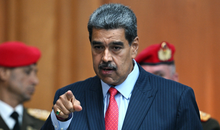
38 people arrested for conspiracy in Venezuela, among them an Albanian
2025-05-20 21:18:15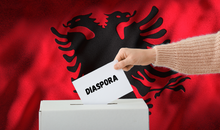

Torrential rainfall hits southeastern France, 3 confirmed victims
2025-05-20 20:49:14

Shehaj: Our votes will never unite with Edi Rama
2025-05-20 20:24:31
The ship "Butrinti" rescues 13 migrants in the Aegean Sea, including 2 children
2025-05-20 20:01:12
Video/ Revolt in Corfu prison, Albanians and Georgians set fire to cells
2025-05-20 19:51:04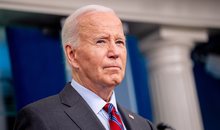
Biden diagnosed with cancer, questions about his health in the White House
2025-05-20 19:37:01



How SP candidates withdrew from vote complaints after Rama's message
2025-05-20 18:34:12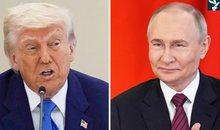
Trump-Putin conversation/ Analysis: Who won in the two-hour call?
2025-05-20 18:15:00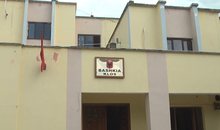
Suspicions of electoral crimes, SPAK checks the municipality of Klos
2025-05-20 18:02:48
Vucic message to the Serbian coach: Go to Tirana and win against Albania
2025-05-20 17:50:48
Këlliçi: The diaspora vote is a massacre, the violations are flagrant
2025-05-20 17:39:37
Accused of drug trafficking in Italy, the Supreme Court acquits Kreshnik Farruku
2025-05-20 17:20:53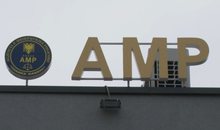

Venezuelan President: Ecuador's Albanian Mafia seeks to sabotage our elections
2025-05-20 17:01:14
Accident at "Shkalla e Tujanit" in Tirana, a car overturns after the collision
2025-05-20 16:51:18
Diaspora vote, Source: Process more symbolic than with real impact
2025-05-20 16:41:12
Why Careful Reporting on Tragic Cases Is Important
2025-05-20 16:17:12
KPA dismisses Tirana judge Ardiana Bera from office
2025-05-20 16:13:30
Even young people with hypertension, 35% of 18-year-olds with blood pressure
2025-05-20 16:01:07

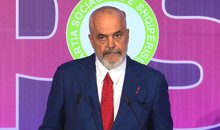
Enigma/ How did the SP grow more than in the previous elections this year?
2025-05-20 15:12:50
Threat against President Osmani, KMDLNJ: Risk to security and democracy
2025-05-20 15:01:56

Hungary's parliament approves withdrawal from the International Criminal Court
2025-05-20 14:50:00
Defamation lawsuit against Albana Vokshi, hearing postponed at the GJKKO
2025-05-20 14:36:20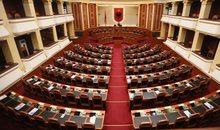
Names/Who are the 140 MPs who will sit in the Assembly?
2025-05-20 14:21:57
Why don't young people want to get married anymore?
2025-05-20 14:15:27
EU approves new sanctions against Russia
2025-05-20 13:49:54
Flax seeds, positive and negative effects of their consumption
2025-05-20 13:45:54

Pope Leo XIV's house goes up for auction for $250,000
2025-05-20 13:23:49
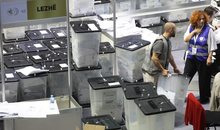
Don't lose face/ After Rama's 'threat', SP candidates withdraw request from CEC
2025-05-20 13:02:09
Berisha warns Rama: You will not stay in power with this farce
2025-05-20 12:55:00



RTSH's official website hacked, fake news about Kosovo appears
2025-05-20 12:10:17

Accident in Korça, motorcycle collides with car, 45-year-old injured
2025-05-20 11:44:48


Germany/ 46-year-old Albanian injures three people, including an 11-year-old
2025-05-20 11:12:01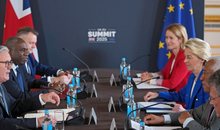
What does the agreement between Britain and the EU contain?
2025-05-20 11:01:38

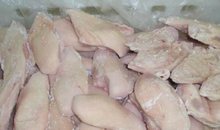
Kosovo bans chicken imports from Brazil
2025-05-20 10:33:45
Makinën plot me d*ogë, vihen në pranga dy persona në aksin “Mamurras-Kashar”
2025-05-20 10:23:33
How does speaking multiple languages change the brain?
2025-05-20 10:15:05
Photo/ This is the 29-year-old who was executed in Durrës
2025-05-20 10:00:39
Foreign exchange/ How much foreign currencies are bought and sold today
2025-05-20 09:51:04
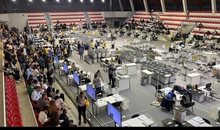


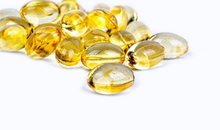
Discover the main signs that indicate your body lacks vitamin D
2025-05-20 09:06:39

Horoscope, what do the stars have in store for you today?
2025-05-20 08:50:06

He was executed by masked men, who is the 29-year-old who was killed in Durrës?
2025-05-20 08:28:21
Assassinations in Durres, 29-year-old executed
2025-05-20 08:14:59
Clear skies and light clouds, this is the weather forecast for Tuesday
2025-05-20 08:05:40
Posta e mëngjesit/ Me 2 rreshta: Çfarë pati rëndësi dje në Shqipëri
2025-05-20 07:50:55
"We broke a myth", Shabani: The Shehaj-Lapaj debate also harmed us
2025-05-19 22:59:18




Shkullaku: With the vote of the diaspora, a slaughterhouse has been created
2025-05-19 21:46:19
CEC orders recount in 2 polling centers in Elbasan and Durrës
2025-05-19 21:33:47
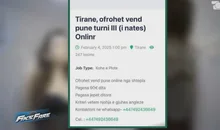
250 euros a night for virtual clients, online prostitution discovered
2025-05-19 21:17:10
Yrshek, 15-year-old hits and kills an elderly man
2025-05-19 21:07:05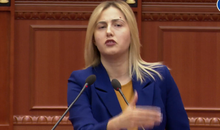

Adoption in Albania: The system that "holds" abandoned children hostage
2025-05-19 20:52:27
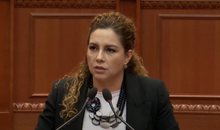
Counting for preferential vote in Tirana ends, Xhaçka receives mandate
2025-05-19 20:23:22
Kosovo President Vjosa Osmani receives death threat
2025-05-19 19:47:49



Safet Gjici's release, lawyer: Today the true face of justice was seen
2025-05-19 19:02:46
